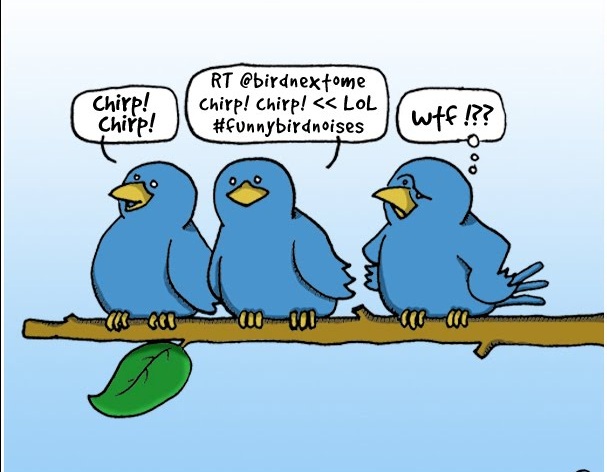
“Hey al im on my way 2wrk but i totes 4got 2bring ur ipod sori il hav 2 bring it nxt tym ur workin. Hav a nice day xo”
Gives you the cramps? Maybe you are a bit of a language purist then.Ora pedant. That’s at least how Stephen Fry would describe you. In the following video, with his lovely British accent and some pleasant word-art of Matthew Rogers, he’s pretty clear about it:Please stop wining if you ‘love’ language and start enjoying it.
The British comedian wants us to get more creative with language, or at least encourage other people to do so. Being creative with words is not considered very trendy anymore, he regrets to say.
Luckily, that’s not entirely true. Takerappers, for example. You might getannoyed by their breaking of grammar rules, but what about theirrichness of vocabulary?Matt Daniels recently scored an online hit by publishing his visualization of the vocabulary of hiphop artist compared to thatof Moby Dick and Shakespeare.The last onedidn’t reallystand out. The Wutang Clan seems to be a lot more creative when searching for wordsto make their point. (To identify every single rapper,follow this link)
So while it may feel likeour youth’s vocabulary is loosing out on all the so‘s,and likes,there might also be other forces active in the current evolution of language. Australian social researcher Mark
McCrindle wrote the book ‘Word Up: A Lexicon and Guide to Communication in the 21st Century‘ about these trends. He explains that technology, American culture, multiculturalism and globalisation are four forcesshaping language today. Especially technology is an important one. Social media are adoptingthe historically looser rules for speach into the written world. And because this written speachis often under the pressure of time and space – think about chatting with 10 different people at onceand thecharacter limit of tweets – it must be as efficient as possible. That’s why words like HAWU (hello all, what’s up?) andcul8erwereinvented.
“Yes, we know”, cry the pedants, “and it is awfull.” They are getting more and more distressed by websites like brandwatch.com, that recently published a studyabout incorrect English on social media. Whether the numbers are very worrying is up to you to decide. Twitter was the main culprit, with 0,56 % of words being misspelled. Americans and females were especially likely to make ‘errors’, which often included dont and wont, gonna and kinda, aarrrgh and soooo and LOL and OMG.
Language purists fear that these trends will find their way into student’s essays, job applications and eventually all formaldocuments.But is that really happening? Research suggests not, at least not at the moment. A study amongst Australian and Canadian students showed that they rate the use oftextismin exams and assignement as inappropriateand they indeed rarely use it in this form.
This is also what Marck McCrindle writes about in his book Word up. He saysthat researcher and linguist David Crystal spoke to hundreds of teachers and examiners and none of them said they had encountered ’tech speak’ in their students’ assignments.
So far so good. But don’t think language won’t change. Technology is alreadypenetrating our vocabulary in a lot of ways. McCrindle points to variouswebsites with the only purpose of gathering new words, both ’tech’ as well asterms related to the scene of youngsters (bennifer for Ben Affleck and Jennifer Lopez).It is justone of theseways for young people to distinguish themselves from the older generation.
Reference:
Grace, A., Kemp, N., Martin, F., & Parrila, R. (2013). Undergraduates’ attitudes to text messaging language use and intrusions of textisms into formal writing New Media & Society DOI: 10.1177/1461444813516832
Gepubliceerd op United Academics Magazine
